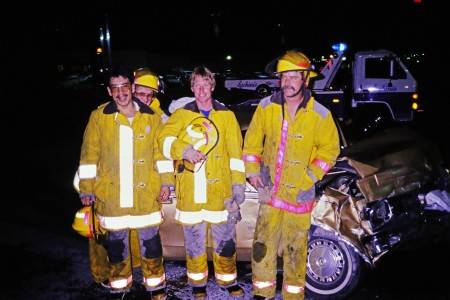POISONING / OVERDOSE
ALL LEVELS
DESIGNATION OF CONDITION
Evidence of inhalation, ingestion, or injection of a substance causing an untoward effect. Signs and symptoms may include any one or all of the following: respiratory depression, apnea, tachycardia, bradycardia, cardiac arrhythmia's, altered mental status, unconsciousness, nausea, vomiting, and cardiac arrest.
EMPHASIS ON PATIENT CARE
Airway management, adequate oxygenation and maintain adequate perfusion
1. Primary Management - Assess ABC’s and manage as indicated.
2. Secondary Management - History, physical exam, vital signs
a. If medication overdose, ascertain:
i. Amount of and type
ii. Time taken
iii. Accidental vs. intentional
iv. Mixed OD
v. History of underlying illness, if appropriate
vi. Treatment prior to arrival
b. If poisoning: Identify the following
i. Substances and quantity taken and bring medications with you to the hospital.
ii. Method taken
iii. Underlying conditions
iv. Has the patient vomited?
3. Contact Poison Control [1-800-222-1222] and transport the patient to an appropriate medical facility. Consider ALS intercept.
4. If narcotic overdose is suspected with serious signs and symptoms:
i. Administer NALOXONE 0.4 mg IM, SQ or [2 mg (1 mg per nostril)] IN, may repeat every 2-5 min. [0.4 mg increments] until 2 mg has been administered.
5. If organophosphate overdose or symptomatic exposure with serious signs and symptoms:
i. Administer ATROPINE 1 mg IV q 5 min for bronchorrhea.
• Pediatric ATROPINE 0.04 mg/kg IV q 5 min for bronchorrhea
ALL LEVELS
DESIGNATION OF CONDITION
Evidence of inhalation, ingestion, or injection of a substance causing an untoward effect. Signs and symptoms may include any one or all of the following: respiratory depression, apnea, tachycardia, bradycardia, cardiac arrhythmia's, altered mental status, unconsciousness, nausea, vomiting, and cardiac arrest.
EMPHASIS ON PATIENT CARE
Airway management, adequate oxygenation and maintain adequate perfusion
1. Primary Management - Assess ABC’s and manage as indicated.
2. Secondary Management - History, physical exam, vital signs
a. If medication overdose, ascertain:
i. Amount of and type
ii. Time taken
iii. Accidental vs. intentional
iv. Mixed OD
v. History of underlying illness, if appropriate
vi. Treatment prior to arrival
b. If poisoning: Identify the following
i. Substances and quantity taken and bring medications with you to the hospital.
ii. Method taken
iii. Underlying conditions
iv. Has the patient vomited?
3. Contact Poison Control [1-800-222-1222] and transport the patient to an appropriate medical facility. Consider ALS intercept.
4. If narcotic overdose is suspected with serious signs and symptoms:
i. Administer NALOXONE 0.4 mg IM, SQ or [2 mg (1 mg per nostril)] IN, may repeat every 2-5 min. [0.4 mg increments] until 2 mg has been administered.
5. If organophosphate overdose or symptomatic exposure with serious signs and symptoms:
i. Administer ATROPINE 1 mg IV q 5 min for bronchorrhea.
• Pediatric ATROPINE 0.04 mg/kg IV q 5 min for bronchorrhea
